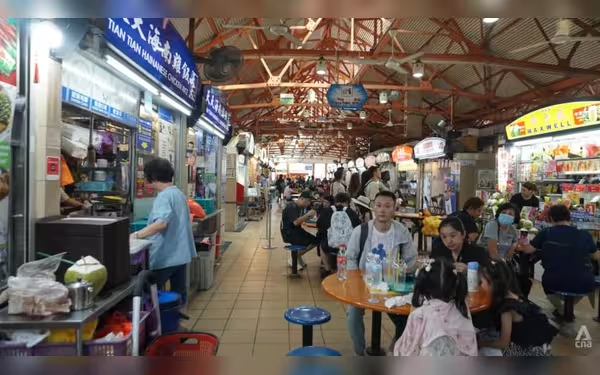Saturday, November 16, 2024 05:53 PM
Long-Term Visit Pass Holders Can Work as Stall Assistants in Singapore
- LTVP holders can now assist hawker stalls from January 1.
- Government addresses manpower challenges in hawker industry.
- Policy aims to support local businesses and food culture.
 Image Credits: channelnewsasia
Image Credits: channelnewsasiaStarting January 1, LTVP holders can work as stall assistants in Singapore, addressing manpower challenges in the hawker industry.
In a significant move aimed at addressing the manpower challenges faced by hawker stalls in Singapore, the government has announced that starting January 1, long-term visit pass holders (LTVP) will be permitted to work as stall assistants. This decision was revealed by Senior Minister of State for Sustainability and the Environment, Koh Poh Koon, during a parliamentary session on October 14.
Traditionally, hawker stalls in Singapore have been limited to hiring only Singapore citizens and permanent residents. This restriction has posed challenges for stallholders, particularly in managing their operations efficiently. However, the National Environment Agency (NEA) has shown some flexibility by allowing stallholders to employ their spouses who hold LTVP or LTVP-Plus passes, provided they have received the necessary work approval.
Dr. Koh emphasized that the relaxation of these hiring policies is a response to the pressing need for manpower in the hawker industry, which is one of the main cost drivers for these small businesses. By expanding the pool of potential employees, the NEA aims to provide hawkers with more options to manage their stalls effectively.
As the hawker culture is an integral part of Singapore's identity, the government is also exploring additional support measures to assist these small business owners. While specific details are yet to be disclosed, the authorities are committed to ensuring that hawkers can thrive in a competitive environment.
This new policy not only opens doors for LTVP holders but also reflects the government's understanding of the evolving needs of the hawker industry. It is a step towards creating a more inclusive workforce that can help sustain the vibrant food culture that Singapore is known for.
The decision to allow LTVP holders to work as stall assistants is a welcome change for hawker stalls facing labor shortages. It highlights the government's proactive approach to supporting local businesses while also recognizing the contributions of foreign workers. As the implementation date approaches, it will be interesting to see how this policy impacts the hawker landscape and whether it leads to a more robust and resilient food service sector in Singapore.













